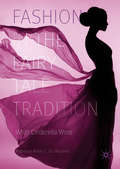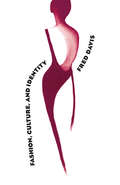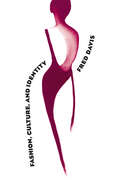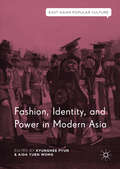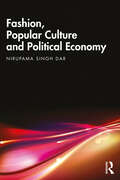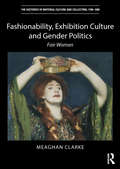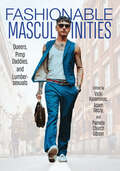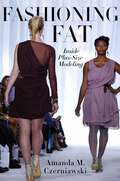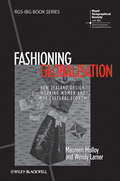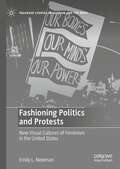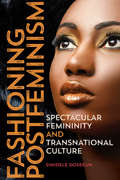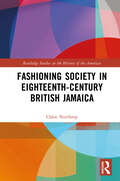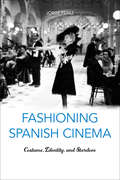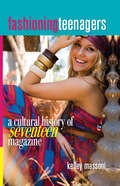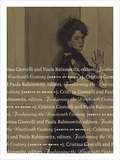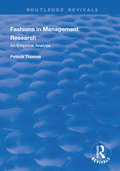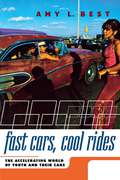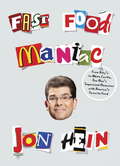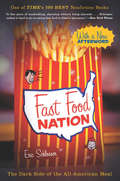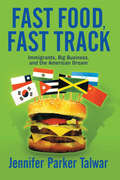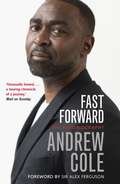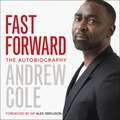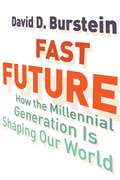- Table View
- List View
Fashion in the Fairy Tale Tradition: What Cinderella Wore
by Rebecca-Anne C. Do RozarioThis book is a journey through the fairy-tale wardrobe, explaining how the mercurial nature of fashion has shaped and transformed the Western fairy-tale tradition. Many of fairy tale’s most iconic images are items of dress: the glass slippers, the red capes, the gowns shining like the sun, and the red shoes. The material cultures from which these items have been conjured reveal the histories of patronage, political intrigue, class privilege, and sexual politics behind the most famous fairy tales. The book not only reveals the sartorial truths behind Cinderella’s lost slippers, but reveals the networks of female power woven into fairy tale itself.
Fashion, Culture, and Identity (Emersion: Emergent Village Resources For Communities Of Faith Ser.)
by Fred DavisWhat do our clothes say about who we are or who we think we are? How does the way we dress communicate messages about our identity? Is the desire to be "in fashion" universal, or is it unique to Western culture? How do fashions change? These are just a few of the intriguing questions Fred Davis sets out to answer in this provocative look at what we do with our clothes—and what they can do to us. Much of what we assume to be individual preference, Davis shows, really reflects deeper social and cultural forces. Ours is an ambivalent social world, characterized by tensions over gender roles, social status, and the expression of sexuality. Predicting what people will wear becomes a risky gamble when the link between private self and public persona can be so unstable.
Fashion, Culture, and Identity (Emersion: Emergent Village Resources For Communities Of Faith Ser.)
by Fred DavisWhat do our clothes say about who we are or who we think we are? How does the way we dress communicate messages about our identity? Is the desire to be "in fashion" universal, or is it unique to Western culture? How do fashions change? These are just a few of the intriguing questions Fred Davis sets out to answer in this provocative look at what we do with our clothes—and what they can do to us. Much of what we assume to be individual preference, Davis shows, really reflects deeper social and cultural forces. Ours is an ambivalent social world, characterized by tensions over gender roles, social status, and the expression of sexuality. Predicting what people will wear becomes a risky gamble when the link between private self and public persona can be so unstable.
Fashion, Identity, and Power in Modern Asia (East Asian Popular Culture)
by Kyunghee Pyun Aida Yuen WongThis edited volume on radical dress reforms in East Asia takes a fresh look at the symbols and languages of modernity in dress and body. Dress reform movements around the turn of the twentieth century in the region have received little critical attention as a multicultural discourse of labor, body, gender identity, colonialism, and government authority. With contributions by leading experts of costume/textile history of China, Korea, and Japan, this book presents up-to-date scholarship using diverse methodologies in costume history, history of consumption, and international trade. Thematically organized into sections exploring the garments and uniforms, accessories, fabrics, and fashion styles of Asia, this edited volume offers case studies for students and scholars in an ever-expanding field of material culture including, but not limited to, economic history, visual culture, art history, history of journalism, and popular culture. Fashion, Identity, and Power in Modern Asia stimulates further research on the impact of modernity and imperialism in neglected areas such as military uniform, school uniform, women’s accessories, hairstyles, and textile trade.
Fashion, Popular Culture and Political Economy
by Nirupama Singh DarThis book delves into the intricate interplay of political, economic, and philosophic forces that have shaped popular culture, fashion, social movements and societies. Exploring the developments of the twentieth century and the transition into the new millennium, this work traces the causality between culture, fashion, philosophical discourses, and political economy. It analyzes political-economic and philosophical factors to demonstrate how fashion emerges as a pivotal force that guides and shapes post-modern democratic societies and market economies.The volume weaves together insights from sociology, cultural studies, feminist studies, fashion history, cinematography, media, the entertainment industry and social policy research. It examines how postmodern societies, shaped by post-structuralist critique and neo-liberal ideologies, navigates the complexities of democracy and market economies, evolving from deeply entrenched systems of colonialism and feudalism to achieve modernization and massive technological progress and reach a social reality of postmodernist paradigms.Topical and lucid, this invigorating work shows how fashion leads to social engineering. It will be of interest to scholars and researchers of fashion studies, popular culture, cultural studies, sociology, gender studies, political economy and political studies. This book also provides valuable perspectives for policymakers, film critics, women's rights groups, social policy researchers, film censor boards and journalists.
Fashionability, Exhibition Culture and Gender Politics: Fair Women (The Histories of Material Culture and Collecting, 1700-1950)
by Meaghan ClarkeFair Women was the Victorian equivalent of a ‘blockbuster’ exhibition. Organised by a committee of women, it opened to great fanfare in the Grafton Galleries in London, and was comprised of both historical and contemporary portraits of women as well as decorative objects. Meaghan Clarke argues that the exhibition challenged contemporary assumptions about the representation of women and the superficiality of female collectors. The Fair Women phenomenon complicated gender stereotypes and foregrounded women as cultural arbiters. This book uncovers a wide range of texts and images to reveal that Fair Women brought together fashion, modernity and gender politics in new and surprising ways. It shows that, while invariably absent in institutional histories, women were vital to the development of the modern blockbuster exhibition. This book will be of interest to scholars in art and gender studies, museum studies, feminist art history, women artists and art history.
Fashionable Masculinities: Queers, Pimp Daddies, and Lumbersexuals
by Anne Peirson-Smith Adam Geczy Pamela Church Gibson Vlad Strukov Andrew Reilly Barry Judd Vicki Karaminas Shaun Cole Jennifer Craik Jay McCauley Bowstead Ben Barry Michael McMillan Justine Taylor Nigel Lezama Jonathan Allan Nikita Vanderbyl Olga Vainshtein Victor VeyFashionable Masculinities explores the expression of masculinities through constructions of fashion, identity, style and appearance as the third decade of the new millennium begins: a contradictory and precarious moment when masculinities are defined by protests and pandemics whilst being problematized across class, ethnicity, race, gender and sexuality. Whilst a majority of men might still define themselves as ‘traditional,’ post-millennials are now talking about how they envision a future without gender boundaries and borders. Rather than being defined as a gender, masculinity has now become a style that can be worn and performed as traditional and normative codes of masculinity are modulated and manipulated. This volume includes original essays on musical pop sensation Harry Styles, rapper and producer “Puff Daddy” Sean Combs, lumbersexuals, spornosexuals, sexy daddies, and aging cool black daddies. Bringing together contributions from leading scholars, this book interrogates and challenges the meaning of masculinities and the ways that they are experienced and lived.
Fashioning Fat: Inside Plus-Size Modeling
by Amanda M. CzerniawskiFor two and a half years, Amanda Czerniawski was a sociologist turned plus-size model. Journeying into a world where, as a size 10, she was not considered an average body type, but rather, for the fashion industry, “plus-sized,” Czerniawski studied the standards of work and image production in the plus-sized model industry.Fashioning Fat takes us through a model’s day-to-day activities, first at open calls at modeling agencies and then through the fashion shows and photo shoots. Czerniawski also interviewed 35 plus size models about their lives in the world of fashion, bringing to life the strange contradictions of being an object of non-idealized beauty.Fashioning Fat shows us that the mission of many of these models is to challenge our standards of beauty that privilege the thin body; they show us that fat can be sexy. Many plus-size models do often succeed in overcoming years of self-loathing and shame over their bodies, yet, as Czerniawski shows, these women are not the ones in charge of beauty’s construction or dissemination. At the corporate level, the fashion industry perpetuates their objectification. Plus-size models must conform to an image created by fashion’s tastemakers, as their bodies must fit within narrowly defined parameters of size and shape—an experience not too different from that of straight-sized models. Ultimately, plus-size models find that they are still molding their bodies to fit an image instead of molding an image of beauty to fit their bodies. A much-needed behind-the-scenes look at this growing industry, Fashioning Fat is a fascinating, unique, and important contribution to our understanding of beauty.
Fashioning Globalisation: New Zealand Design, Working Women and the Cultural Economy (RGS-IBG Book Series)
by Maureen Molloy Wendy LarnerDrastic changes in the career aspirations of women in the developed world have resulted in a new, globalised market for off-the-peg designer clothes created by independent artisans. This book reports on a phenomenon that seems to exemplify the twin imperatives of globalisation and female emancipation. A major conceptual contribution to the literatures on globalisation, fashion and gender, analysing the ways in which women’s entry into the labour force over the past thirty years in the developed world has underpinned new forms of aestheticised production and consumption as well as the growth of ‘work-style’ businesses A vital contribution to the burgeoning literature on culture and creative industries which often ignores the significant roles taken by women as entrepreneurs and designers rather than mere consumers Introduces fashion scholars and economic geographers to a paradigmatic example of the new designer fashion industries emerging in a range of countries not traditionally associated with fashion Takes a fresh perspective on an industry in which Third World garment workers have been the subject of exhaustive analysis but first world women have been largely ignored
Fashioning Politics and Protests: New Visual Cultures of Feminism in the United States (Palgrave Studies in Fashion and the Body)
by Emily L. NewmanThrough meticulous examinations, this book analyzes how women update their identities and articulate their feelings through clothing and art in protests, politics in the United States in the 20th century. Topics explored include the suffragists and their impact on contemporary art, the significance of the red dress in both The Handmaid’s Tale and the Missing and Murdered Indigenous Women movement, the impact of the Miss America protests, the rising popularity of the pantsuit for women, the recent dominance of the pussyhat, and the way that feminist slogans are disseminated on t-shirts. Movements discussed include craftivism, hashtag culture, feminism, the CROWN act, Pantsuit Nation, socially-committed stores, and more. Interdisciplinary and intersectional at its core, addressing numerous areas, including fashion, sociology, visual culture, art history, feminism, and popular culture; Fashioning Politics and Protests uncovers how women continue to use visual means, explored via their clothing, to change the world.
Fashioning Postfeminism: Spectacular Femininity and Transnational Culture (Dissident Feminisms #33)
by Simidele DosekunWomen in Lagos, Nigeria, practice a spectacularly feminine form of black beauty. From cascading hair extensions to immaculate makeup to high heels, their style permeates both day-to-day life and media representations of women not only in a swatch of Africa but across an increasingly globalized world. Simidele Dosekun's interviews and critical analysis consider the female subjectivities these women are performing and desiring. She finds that the women embody the postfeminist idea that their unapologetically immaculate beauty signals—but also constitutes—feminine power. As empowered global consumers and media citizens, the women deny any need to critique their culture or to take part in feminism's collective political struggle. Throughout, Dosekun unearths evocative details around the practical challenges to attaining their style, examines the gap between how others view these women and how they view themselves, and engages with ideas about postfeminist self-fashioning and subjectivity across cultures and class. Intellectually provocative and rich with theory, Fashioning Postfeminism reveals why women choose to live, embody, and even suffer for a fascinating performative culture.
Fashioning Society in Eighteenth-Century British Jamaica (Routledge Studies in the History of the Americas)
by Chloe NorthropWhite women who inhabited the West Indies in the eighteenth century fascinated metropolitan observers. In popular prints, novels, and serial publications, these women appeared to stray from "proper" British societal norms. Although many women who lived in the Caribbean island of Jamaica might have fit the model, extant writings from Ann Brodbelt, Sarah Dwarris, Margaret and Mary Cowper, Lady Maria Nugent, and Ann Appleton Storrow show a longing to remain connected with metropolitan society and their loved ones separated by the Atlantic. Sensibility and awareness of metropolitan material culture masked a lack of empathy towards subordinates and opened the white women in these islands to censure. Novels and popular publications portrayed white women in the Caribbean as prone to overconsumption, but these women seem to prize items not for their inherent value. They treasured items most when they came from beloved connections. This colonial interchange forged and preserved bonds with loved ones and comforted the women in the West Indies during their residence in these sugar plantation islands. This book seeks to complicate the stereotype of insensibility and overconsumption that characterized the perception of white women who inhabited the British West Indies in the long eighteenth century. This book will appeal to students and researchers alike who are interested in the social and cultural history of British Jamacia and the British West Indies more generally.
Fashioning Spanish Cinema: Costume, Identity, and Stardom (Toronto Iberic)
by Jorge PérezCostume design is a crucial, but frequently overlooked, aspect of film that fosters an appreciation of the diverse ways in which film and fashion enrich each other. These influential industries offer representations of ideas, values, and beliefs that shape and construct cultural identities. In Fashioning Spanish Cinema, Jorge Pérez analyses the use of clothing and fashion as costumes within Spanish cinema, paying particular attention to the significance of those costumes in relation to the visual styles and the narratives of the films. The author examines the links between costume analysis and other fields and theoretical frameworks such as fashion studies, the history of dress, celebrity studies, and gender and feminist studies. Fashioning Spanish Cinema looks at instances in which costumes are essential to shaping the public image of stars, such as Conchita Montenegro, Sara Montiel, Victoria Abril, and Penélope Cruz. Focusing on examples in which costumes have discursive autonomy, it explores how costumes engage with broader issues of identity and, relatedly, how costumes impact everyday practices and fashion trends beyond cinema. Drawing on case studies from multiple periods, films by contemporary directors and genres, and red-carpet events such as the Oscars and Goya Awards, Fashioning Spanish Cinema contributes a pivotal Spanish perspective to expanding interdisciplinary work on the intersections between film and fashion.
Fashioning Teenagers: A Cultural History of Seventeen Magazine
by Kelley MassoniFounded in 1944 by Helen Valentine, Seventeen magazine was the first modern “teen magazine.” An immediate success, it became iconic in establishing the tastes and behaviors of successive generation of teen girls covering the last half of the 20th century. Kelley Massoni has written the first cultural history of the origins of Seventeen and its role in shaping the modern teen girl ideal. Using content analysis, interviews, letters, oral histories, and promotional materials, Massoni is able to show how Seventeen helped create the modern concept of “teenager.” The early Seventeen provided a generation of thinking young women with information on citizenship and clothing, politics and popularity, adult occupations and adolescent preoccupations, until economic and social forces converged to reshape the magazine toward teen consumerism. A chapter on the 21st century Seventeen brings the story to the present. Fashioning Teenagers will be of interest to students of popular culture, sociology, gender studies, mass media, journalism, business, and American studies.
Fashioning the Nineteenth Century: Habits of Being 3
by Cristina GiorcelliIn nineteenth-century Europe and the United States, fashion—once the province of the well-to-do—began to make its way across class lines. At once a democratizing influence and a means of maintaining distinctions, gaps in time remained between what the upper classes wore and what the lower classes later copied. And toward the end of the century, style also moved from the streets to the parlor. The third in a four-part series charting the social, cultural, and political expression of clothing, dress, and accessories, Fashioning the Nineteenth Century focuses on this transformative period in an effort to show how certain items of apparel acquired the status of fashion and how fashion shifted from the realm of the elites into the emerging middle and working classes—and back.The contributors to this volume are leading scholars from France, Italy, and the United States, as well as a practicing psychoanalyst and artists working in fashion and with textiles. Whether considering girls&’ school uniforms in provincial Italy, widows&’ mourning caps in Victorian novels, Charlie&’s varying dress in Kate Chopin&’s eponymous story, or the language of clothing in Henry James, the essays reveal how changes in ideals of the body and its adornment, in classes and nations, created what we now understand to be the imperatives of fashion.Contributors: Dagni Bredesen, Eastern Illinois U; Carmela Covato, U of Rome Three; Agnès Derail-Imbert, École Normale Supérieure/VALE U of Paris, Sorbonne; Clair Hughes, International Christian University of Tokyo; Bianca Iaccarino Idelson; Beryl Korot; Anna Masotti; Bruno Monfort, Université of Paris, Ouest Nanterre La Défense; Giuseppe Nori, U of Macerata, Italy; Marta Savini, U of Rome Three; Anna Scacchi, U of Padua; Carroll Smith-Rosenberg, U of Michigan.
Fashions in Management Research: An Empirical Analysis (Routledge Revivals)
by Patrick ThomasPublished in 1999, this text sets out to analyze fashions in management literature through studying patterns in the citations offered to leading management authors. Particular attention is paid to those publications which are cited extensively, but only for a short period - these publications are regarded as potentially subject to fashionable pressures. More detailed case studies of fashionable publications are undertaken to gain a greater understanding of what factors may lead to management fashions. The book represents a large-scale empirical analysis of management fashions and culminates in an empirically validated theory of management fashions.
Fast Cars, Cool Rides: The Accelerating World of Youth and Their Cars
by Amy L. BestBass booms from custom speakers, pick-up trucks boast lowered suspensions, chrome rims reflect stoplights, and bare arms dangle from open windows. Welcome to Santa Clara Street in San Jose, California, where every weekend kids come to cruise late at night, riding their cars slow and low. On the surrounding, less-traveled streets you can also find young men racing customized cars to see who has the "go," not just the "show." And, in the daylight hours, in a nearby suburb, you might find a brand new SUV parked in the driveway, a parents' Sweet 16 present. In Fast Cars, Cool Rides Amy Best provides a fascinating account of kids and car culture. Encompassing everything from learning to drive to getting one’s license, from cruising to customizing, from racing to buying one's first car, Best shows that never before have cars played such an important role in the lives of America's youth as they do today. Drawing on interviews with over 100 young men and women, aged 15-24, and five years of research—cruising hot spots, sitting in on auto shop class, attending car shows—Best explores the fast-paced world of kids and their cars. She reveals a world where cars have incredible significance for kids today, as a means of transportation and thereby freedom to come and go, as status symbols and as a means to express their identities. But while having a fast car or a cool ride can carry tremendous importance for these kids, Best shows that the price, especially when it can cost $30,000, can be steep as working-class kids work jobs to make car payments and as college kids forgo moving out of Mom and Dad's house because they can't pay for rent, car payments, and car insurance.Fast Cars, Cool Rides offers a rare and rich portrait of the complex and surprising roles cars can play in the lives of young Americans. Fasten your seatbelts, it's going to be a cool ride.
Fast Facts on the Masonic Lodge
by John Weldon John AnkerbergAre Masonry and Christianity truly compatible? Using their concise question-and-answer style, noted researchers John Ankerberg and John Weldon examine Masonic terminology and answer critical questions: What do Masons teach about Jesus Christ?; What do Masonic symbols represent?; Is the God of the Bible also the God of the Masonic Lodge?
Fast Food Maniac
by Jon HeinThe beloved personality from The Howard Stern Show celebrates American fast food, exploring the history and secret menu items of both national and regional chains, ranking everything from burgers and fries to ice and mascots, and offering his own expert tips on where to go and what to order. Jon Hein is the ultimate fast food maniac, and in this book he draws on his extensive knowledge of, and love for, both nationwide chains and regional gems, from McDonald's and KFC to In-N-Out Burger and Carvel. He digs into their origin stories; reveals secret menu items; includes best lists for everything from fried chicken and shakes to connoisseur concerns such as straws and biscuits; takes a nostalgic look back at the best giveaways, slogans, and uniforms; and even provides a battle-tested drive-thru strategy. With behind-the-counter looks at places like the Dunkin' Donuts headquarters and Nathan's original hot dog stand, Fast Food Maniac is the definitive, cross-country guide to some of America's best-loved guilty pleasures.From the Trade Paperback edition.
Fast Food Nation: The Dark Side of the All-American Meal (Penguin Celebrations Ser.)
by Eric SchlosserNew York Times Bestseller, With a New Afterword"Schlosser has a flair for dazzling scene-setting and an arsenal of startling facts . . . Fast Food Nation points the way but, to resurrect an old fast food slogan, the choice is yours."--Los Angeles TimesIn 2001, Fast Food Nation was published to critical acclaim and became an international bestseller. Eric Schlosser's exposé revealed how the fast food industry has altered the landscape of America, widened the gap between rich and poor, fueled an epidemic of obesity, and transformed food production throughout the world. The book changed the way millions of people think about what they eat and helped to launch today's food movement.In a new afterword for this edition, Schlosser discusses the growing interest in local and organic food, the continued exploitation of poor workers by the food industry, and the need to ensure that every American has access to good, healthy, affordable food. Fast Food Nation is as relevant today as it was a decade ago. The book inspires readers to look beneath the surface of our food system, consider its impact on society and, most of all, think for themselves."As disturbing as it is irresistible . . . Exhaustively researched, frighteningly convincing . . . channeling the spirits of Upton Sinclair and Rachel Carson."--San Francisco Chronicle"Schlosser shows how the fast food industry conquered both appetite and landscape."--The New YorkerEric Schlosser is a contributing editor for the Atlantic and the author of Fast Food Nation, Reefer Madness, and Chew on This (with Charles Wilson).
Fast Food, Fast Track: Immigrants, Big Business, And The American Dream
by Jennifer TalwarHailing from China, the Caribbean, Latin America, and India, a colorful sea of faces has taken its place behind one of the most ubiquitous American business institutions ? the fast-food counter. They have become a vital link between the growing service sector in our cities' ethnic enclaves and the multi-billion dollar global fast-food industry. For four years, sociologist Jennifer Parker Talwar went behind the counter herself and listened to immigrant fast-food workers in New York City's ethnic communities. They talked about balancing their low-paying jobs and monotonous daily reality with keeping the faith that these very jobs could be the first step on the path to the American Dream. In this original and compelling work of ethnography, Talwar shows that contrary to those arguing that the fast-food industry only represents an increasing homogenization of the American workforce, fast-food chains in immigrant communities must and do adapt to their surroundings.
Fast Forward: The Hard Road to Football Success
by Andrew Cole'A moving chronicle of a journey' - Mail on Sunday'A powerful and moving book - it's quite a battle he has faced' - Nick Robinson, BBC Radio 4 Today Programme'It really is an interesting read' - Dan Walker, BBC Breakfast'Cole's soul-searching reflections on his own character and shortcomings make for a compelling read.' - Backpass*INCLUDES A FOREWORD BY SIR ALEX FERGUSON*__________'I'm not sure whether life prepared me for football, or football prepared me for life.'Misconceptions have stalked Andy Cole like a hatchet-man defender determined to cut him down to size. Now, in his candid and inspirational autobiography, Cole finally puts his side of the story.In the world of modern-day football, Andy Cole's reserved demeanour, combined with belief in his own ability, was often interpreted as an attitude problem that overshadowed his natural aptitude for goalscoring. Throughout his glittering career, he scored 187 Premier League goals, won 5 Premier League titles and 1 Champions League trophy.Now, two decades on from United's historic Treble, he not only gives the inside track on Eric Cantona, Roy Keane, Dwight Yorke and other members of that illustrious side, but also opens up about his fractious relationship with Teddy Sheringham and reveals the prejudices and preconceptions he had to contend with in his twenty years in the game.Compelling in its honesty and frankness, Fast Forward is the thought-provoking story of one man's determination to succeed and survive against all the odds.
Fast Forward: The Hard Road to Football Success
by Andrew Cole'A moving chronicle of a journey' - Mail on Sunday'A powerful and moving book - it's quite a battle he has faced' - Nick Robinson, BBC Radio 4 Today Programme'It really is an interesting read' - Dan Walker, BBC Breakfast'Cole's soul-searching reflections on his own character and shortcomings make for a compelling read.' - Backpass*INCLUDES A FOREWORD BY SIR ALEX FERGUSON*__________'I'm not sure whether life prepared me for football, or football prepared me for life.'Misconceptions have stalked Andy Cole like a hatchet-man defender determined to cut him down to size. Now, in his candid and inspirational autobiography, Cole finally puts his side of the story.In the world of modern-day football, Andy Cole's reserved demeanour, combined with belief in his own ability, was often interpreted as an attitude problem that overshadowed his natural aptitude for goalscoring. Throughout his glittering career, he scored 187 Premier League goals, won 5 Premier League titles and 1 Champions League trophy.Now, two decades on from United's historic Treble, he not only gives the inside track on Eric Cantona, Roy Keane, Dwight Yorke and other members of that illustrious side, but also opens up about his fractious relationship with Teddy Sheringham and reveals the prejudices and preconceptions he had to contend with in his twenty years in the game.Compelling in its honesty and frankness, Fast Forward is the thought-provoking story of one man's determination to succeed and survive against all the odds.
Fast Forward: The Hard Road to Football Success
by Andrew ColeFast Forward is a thought-provoking and gripping autobiography about Andrew Cole's determination to succeed against all the odds.Misconceptions have stalked Andrew Cole like a hatchet-man defender determined to cut him down to size. In the world of modern-day football, his reserved demeanour was often interpreted as surly intransigence. Alongside an aptitude for goalscoring, it was widely believed, ran an attitude problem. In Fast Forward, a candid and inspirational autobiography, Cole finally puts his side of the story.The son of a Windrush-generation Jamaican miner from a humble background in Nottingham, he was viewed as a one-man awkward squad by George Graham and Jimmy Hill before Kevin Keegan identified him as the man to bring goals to Newcastle. However, only when Alex Ferguson, his 'second father', took him to Manchester United did Cole begin to belie his image, amassing goals, medals and England caps. Two decades on from United's historic Treble, he reveals the inside track on Eric Cantona and David Beckham, Roy Keane and Ole Gunnar Solskjaer .After a career spent challenging assumptions and adversity, he had to summon fresh reserves of resilience to battle illness and depression.(P) 2019 Hodder & Stoughton Ltd
Fast Future: How the Millennial Generation Is Shaping Our World
by David D. BursteinA millennial examines how his generation is profoundly impacting politics, business, media, and activismThey've been called trophy kids, entitled, narcissistic, the worst employees in history, and even the dumbest generation. But, argues David Burstein, the millennial generation's unique blend of civic idealism and savvy pragmatism will enable us to overcome a deeply divided nation facing economic and environmental calamities.With eighty-million millennials (people who are today eighteen to thirty years old) coming of age and emerging as leaders, this is the largest generation in U.S. history, and, by 2020, its members will represent one out of every three adults. They are more ethnically and racially diverse than their elders and have begun their careers at a time when the recession has set back the job market. Yet they remain optimistic about their future and are deeply connected to one another. Drawing on extensive interviews with his millennial peers and compelling new research, Burstein illustrates how his generation is simultaneously shaping and being shaped by a fast-paced and fast-changing world.Part oral history, part social documentary, Fast Future reveals the impact and story of the millennial generation--in its own words.
